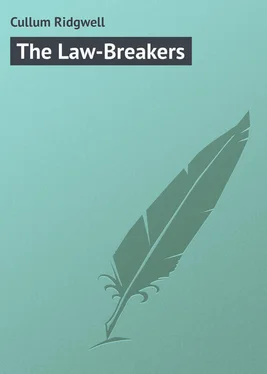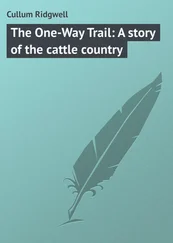Ridgwell Cullum - The Law-Breakers
Здесь есть возможность читать онлайн «Ridgwell Cullum - The Law-Breakers» — ознакомительный отрывок электронной книги совершенно бесплатно, а после прочтения отрывка купить полную версию. В некоторых случаях можно слушать аудио, скачать через торрент в формате fb2 и присутствует краткое содержание. Жанр: foreign_prose, на английском языке. Описание произведения, (предисловие) а так же отзывы посетителей доступны на портале библиотеки ЛибКат.
- Название:The Law-Breakers
- Автор:
- Жанр:
- Год:неизвестен
- ISBN:нет данных
- Рейтинг книги:5 / 5. Голосов: 1
-
Избранное:Добавить в избранное
- Отзывы:
-
Ваша оценка:
- 100
- 1
- 2
- 3
- 4
- 5
The Law-Breakers: краткое содержание, описание и аннотация
Предлагаем к чтению аннотацию, описание, краткое содержание или предисловие (зависит от того, что написал сам автор книги «The Law-Breakers»). Если вы не нашли необходимую информацию о книге — напишите в комментариях, мы постараемся отыскать её.
The Law-Breakers — читать онлайн ознакомительный отрывок
Ниже представлен текст книги, разбитый по страницам. Система сохранения места последней прочитанной страницы, позволяет с удобством читать онлайн бесплатно книгу «The Law-Breakers», без необходимости каждый раз заново искать на чём Вы остановились. Поставьте закладку, и сможете в любой момент перейти на страницу, на которой закончили чтение.
Интервал:
Закладка:
Mr. Moss’s voice rang out violently, and caught the echo of the hills.
“What in hell – ?” he shouted, raising the deadly Winchester swiftly to his shoulder. “Hold up!” he went on, “or I’ll let daylight into some of you.”
The effect of this challenge was instantaneous and almost ludicrous. The oncoming figures stopped, and nearly fell over each other in their haste to thrust their hands above their heads. Then the eager, anxious shout of the gray-headed brakeman came back to him.
“Fer Gawd’s sake don’t shoot!” he cried, in terrified tones. “We’re the train crew! The freight crew! We bin held up! Say – !”
But the lowering of the threatening gun saved him further explanation at such a distance.
The light of battle had entirely died out of Mr. Moss’s eyes, but it was the brakeman’s uniform, rather than his explanation, that had inspired the white flag of peace.
The man came hastily up.
“What the – ?” began the agent. But he was permitted to proceed no further.
The angry eyes of the brakeman snapped, and his blasphemous tongue poured out its protesting story as rapidly as his stormy feelings could drive him. Then, with an added violence, he came to his final charge of the agent himself.
“What in hell did you flag us for?” he cried. “You, on this bum layout? Do you stand in with these ‘hold-ups’? I tell you right here this thing’s goin’ to be just as red-hot for you as I can make it. That train was flagged without official reason ,” he went on with rising heat. “Get me? An’ you’re responsible.”
Having delivered himself of his threat, he assumed the hectoring air which the moral support of his companions afforded him.
“Now, you just start right in and get busy on the wires. You can just hammer seven sorts of hell into your instruments and call up Amberley quick. You’re goin’ to put ’em wise right away. Macinaw! When I’m done with this thing you’re goin’ to hate White Point wuss’n hell, an’ wish to Gawd they’d cut ‘flag station’ right out o’ the conversation of the whole durned American continent.”
Mr. Moss had listened in a perfect daze. It was his blank acceptance of the brakeman’s hectoring which had so encouraged that individual. But now that all had been told, and the man’s harsh tones ceased to disturb the peace of their surroundings, his mind cleared, and hot resentment leaped to his tongue.
He sat down at his instrument and pounded the key, calling up Amberley; and as the Morse sign clacked its metallic, broken note he verbally replied to his accuser.
“You’ve talked a whole heap that sounds to me like hot air,” he cried, with bitter feeling. “Maybe you’re old, so it don’t amount to anything. As for your bum freight it was late – as usual. It wasn’t my duty to pass it through till you shouted for signals. There ain’t any schedule for bum freights. When they’re late it’s up to them.”
But for all Mr. Moss’s contempt, and righteous indignation, the brakeman’s charge had had its effect. Well enough he remembered the disjointed connecting rod, and he wondered how these “hold-ups” had contrived it under his very nose. In his own phraseology, he felt “sore.” But his ill humor was not alone due to the brakeman’s abuse. He was thinking of something far more vital. He knew well enough that his explanation would never satisfy the heads of his department. Then, too, always hovering somewhere in the background, was the, to him, sinister figure of Inspector Fyles of the Mounted Police.
CHAPTER IV
AT THE FOOT OF AN AGED PINE
Waiting for word from the agent, Huntly, Inspector Fyles had retreated to the insignificant wooden shack which served the police as a Town Station in Amberley. It consisted of two rooms and a loft in the pitch of the roof. Its furniture was reduced to a minimum, and everything, except the loft above where the two troopers and the corporal in charge slept, was a matter of bare boards and bare wooden chairs.
The officer sat in the smaller inner room where the telephone was close to his hand, while the non-commissioned officer and his men occupied the outer room.
Fyles faced the window with his hard Windsor chair close beside the office table. His elbow rested upon its chipped and discolored surface, and his chin was supported on the palm of his hand. Just now his busy thoughts were free to wander whithersoever they listed. This was an interim of waiting, when all preparations were made for the work in hand, and there was nothing to do but await developments. So used was he to this work of seizing contraband spirits that its contemplation had not power enough to quicken one single beat of his pulse. And in this, too, he displayed that wondrous patience which was so much a part of his nature.
Stanley Fyles’s reputation in these wild regions was decidedly unique. Scarcely a day passed but what some strenuous emergency arose demanding quick thought and quicker action, where life, frequently his own, hung in the balance. Yet the most strenuous of them found him always easy, always deliberate, and, as his subordinates loved to declare, he always managed to “beat the game by a second.”
There were people outside, civilians, who confidently and contemptuously declared him to be a bungler; a patient, hard-working bungler. These were the men who saw few of his successes, and always contrived to smell out his failures. These people were those who had no understanding of the difficulties of a handful of men pitted against a country eaten up with every form of criminal disease. There were others, again, who insisted that far more crime slipped through his well “oiled” hands than ever was held by them. These were the people who sneered at his reputation for stern discipline, and declared it to be a mere pose to cover his tracks, while he patiently piled up a fortune through the shady channels of “graft.” A small minority admitted his ability, but averred that his patience erred on the side of slackness, which was one of the causes that the flood of prohibited liquor in the country showed no abatement.
Nevertheless, one and all admitted his patience, whether it was in bungling, in harvesting his graft, or whether it was a form of slackness. Nor could they help doing so, for patience, a wonderful purposeful patience, was his greatest characteristic. Every other feature of his personality was subservient to it, and so it was that the most hardened criminals began at once a nervous scrutiny of their tracks the moment the news reached them that the lean nose of Stanley Fyles had caught their scent.
Those who knew Fyles best ignored the patience which caught the public mind so readily. They saw something more beneath it, something much more to their liking. His patience only masked a keen, swift-moving, scheming brain, packed to the uttermost with a wonderful instinct for detection. He worked on no rule-of-thumb method as so many of his comrades did. He was the fortunate possessor of an imagination, and, long since, he had learned its value in his crusade against crime.
But this man was by no means a mere detection machine. He was full of ambition. Police work was merely serving its purpose in his scheme of things. He saw advancement in it – advancement in the right direction. In five years he had raised himself from the lowest rung of the police ladder to a commissioned rank, and from this rank he knew he could reach out in any of the directions in which he required to proceed.
There were several directions in which his ambitious eyes gazed. There were politics, with their multifarious opportunities for fortune and place. There was the land, crying aloud of the fortunes lying hidden within its bosom. There was official service upon higher planes, from which so many names were drawn to fill the roll of fame to be handed down to an adoring posterity. He was not yet thirty years of age, and he felt that any one of these things lay well within the focus his present position presented.
Читать дальшеИнтервал:
Закладка:
Похожие книги на «The Law-Breakers»
Представляем Вашему вниманию похожие книги на «The Law-Breakers» списком для выбора. Мы отобрали схожую по названию и смыслу литературу в надежде предоставить читателям больше вариантов отыскать новые, интересные, ещё непрочитанные произведения.
Обсуждение, отзывы о книге «The Law-Breakers» и просто собственные мнения читателей. Оставьте ваши комментарии, напишите, что Вы думаете о произведении, его смысле или главных героях. Укажите что конкретно понравилось, а что нет, и почему Вы так считаете.












